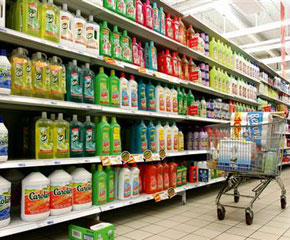A review of 1,018 products, from flooring to air fresheners to mouthwash, carrying 1,753 environment claims showed that the majority of so-called “green” products were labelled in ways that were vague or deliberately misleading.
The report said that of the products examined “all but one made claims that are either demonstrably false or that risk misleading intended audiences.”
Greenwashing
The Pennsylvania-based firm, which refers to misleading environmental marketing as “greenwashing,” said it found “six sins of green marketing”, hidden trade-offs, no proof, vagueness, irrelevance, fibbing and the lesser of two evils.
Top of the list was hidden trade-offs, such as paper products marketing themselves as 10 percent recycled.
“The other 90 percent could be from an old-growth forest,” said Scot Case, vice president of TerraChoice which does market green products under its own label, EcoLogo.
Be weary of “all natural” Another commonly committed “sin” of green-marketing, according to the report, is irrelevance. Labels such as “all natural,” the report points out, are meaningless when one considers the fact that arsenic and mercury are also natural. Similarly, many products have labels declaring them “CFC-free,” even though CFCs, or chlorofluorocarbons, which contribute to ozone depletion, have been banned since 1978.
“What that claim basically says is: ‘We’re obeying the law.’ Well, whoop-de-do,” Case said of the CFC labels.
In some cases, the environmental advertising was false. For instance, a dishwasher detergent that advertised “100 percent recycled paper” packaging came in a plastic container. In another example, several shampoos labelled “certified organic” had no proof of certification.
TerraChoice said a key reason for an increase in products marketed “green” and “greenwashing” is surging consumer interest in environmentally-friendly.
“I blame Al Gore,” joked Case, but added the former US vice president’s Oscar-winning 2006 documentary An Inconvenient Truth is, in fact, one of the factors that spawned wide-spread consumer interest in eco-friendly goods.
“Marketers are naturally responding … They are desperately grabbing for any environmental claim they can slap on the label because they think it will help them sell more products,” Case said.

